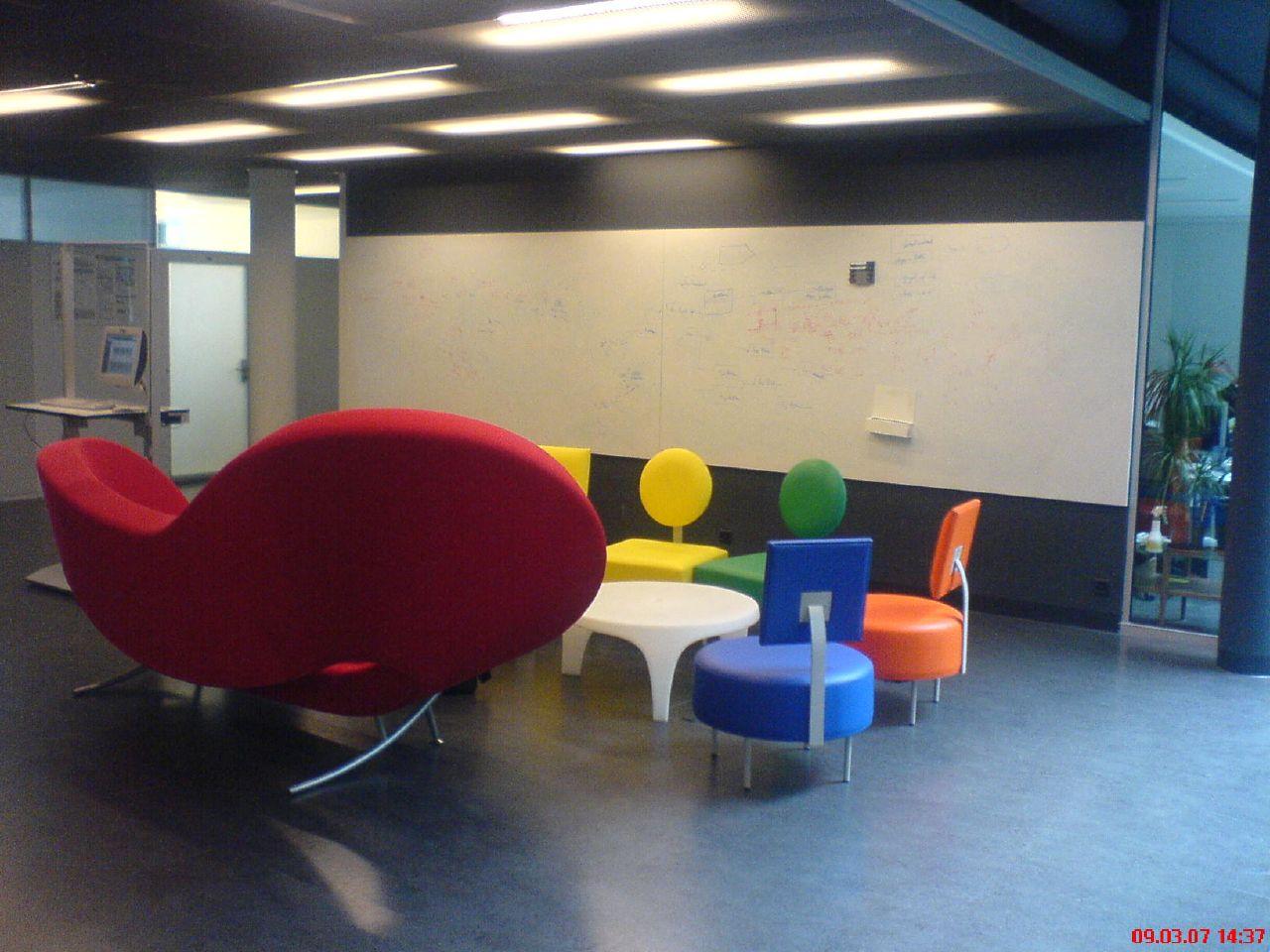The surprising ways companies can foster creativity
An open design space at EPFL, a research university in Lausanne, Switzerland.
Whether it’s with insanely great cafeteria food, an indoor Ferris wheel or a rock-climbing wall, some corporations are pulling out all the stops to make their employees happy, creative and successful.
But there’s more to workplace creativity than a cruelty-free beef patty on a locally sourced bun. To explore the less-delicious side of office life, we turned to one of the foremost experts on workplace psychology and author of The Progress Principle, Harvard’s Teresa Amabile. She’s found some surprising insights that might just make you rethink the way you work in your own office.
1. Pressure isn’t always a bad thing
Nobody (except maybe David Bowie or Freddie Mercury) likes being under pressure at work. There are emails filled with seemingly unrelated tasks, an avalanche of meetings featuring long-winded speakers and a never-ending pile of paperwork on your desk. At the end of the day, you might go home exhausted and unhappy — and still not feel like you accomplished all that much. Amabile agrees that this type of pressure, which she likens to “being on a treadmill,” is terrible. It’s negative for creativity and creates an unhappy office.
However, there’s another type of pressure that can actually be positive.
“We call it 'being on a mission,'" Amabile explains. "There are times when we’re working on something when we’re not fragmented and distracted. When we’re entirely focused on one urgent problem. It could be a big one, and it could be consuming us for many hours of the day, but if we’re able to focus on that, if we’re able to understand why it’s important, why the urgency exists, we can be extraordinarily creative under those conditions.”
Think of the Apollo 13 missions, where the ground control workers were under a huge time crunch to come up with solutions for the astronauts. With blinders on to anything outside the moment, the pressure actually contributed to a successful conclusion.
2. People work better If they believe in what they’re doing
A huge salary, a company car and a great cafeteria aren’t nearly as important as one simple thing: Whether or not employees believe in the work they’re doing.
Amabile’s research, which collected over 12,000 daily diaries of people working in a variety of industries, showed that people were happiest when they made progress on work they cared about and believed in. Once they were happy and satisfied, they were much more creative and successful.
So if you’re feeling unmotivated because you’re just moving numbers around for a company you don’t care about, you might want to move numbers around for a company you do care about.
3. Upper management isn’t THAT important
When you think about creating a culture of workplace creativity and innovation, the first person you think about is usually the CEO: Steve Jobs at Apple, Jeff Bezos at Amazon; they made their workplace creative and successful, right?
Well, partly. Amabile says that upper management can help shape an office. If they give their employees clear goals and the right level of autonomy, they'll be able to do their best work.
But what’s happening at the top isn’t as important as what’s happening at the middle, according to Amabile.
“What upper management does matters, but the actions of your immediate supervisor and your colleagues that you work closely with, that matters more on a day to day basis. They have a larger impact on your experience of the workday, and therefore, your ability to be creative and productive, in your work.”
Validation, emotional support, collaboration, all of these are extremely important to someone’s work life, and these all come from someone’s immediate colleagues. Mark Zuckerberg might be a great CEO, but whether or not you get along with the person in the next cubicle is going to affect the way you work in a far more profound way.
This story first aired as an interview on PRI's Innovation Hub.
